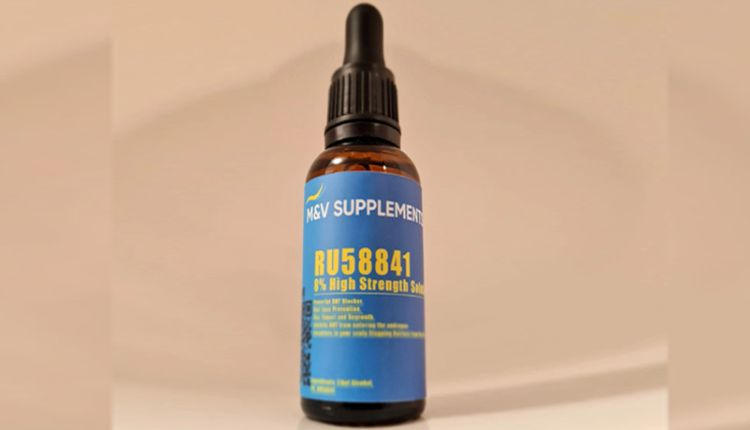
Most of the studies of MVM supplements have been observational or cohort, which cannot prove that dietary supplement use affects health outcomes. The few randomized clinical trials (RCTs) that have been conducted generally show that daily MVM product use does not significantly reduce rates of CVD or cancer deaths.
Use MV Supplements to stop your hairloss products typically provide micronutrient intakes that do not exceed the FDA’s Tolerable Upper Intake Levels for most nutrients, a level that is unlikely to cause adverse effects in healthy people.
Vitamin A
Vitamin A is a fat-soluble compound, most commonly known as retinol or retinal. It plays a key role in immune function, cell growth, and male and female reproductive health. It also helps maintain surface tissues like the cornea and conjunctiva, and is important for eye health.
People with long-term malabsorption of fats (such as those with leaky gut syndrome, celiac disease or pancreatic disorders) are at risk of vitamin A deficiency. Too much Vitamin A from supplements can lead to hypervitaminosis A, which causes scaly skin and liver problems.
Vitamin C
Vitamin C is an antioxidant that protects indispensable molecules, such as proteins, lipids (fats), carbohydrates and nucleic acids (DNA and RNA) against damage by free radicals and reactive oxygen species. Vitamin C is used for treating and preventing the common cold, improving immune function, reducing blood cholesterol and triglycerides, lowering high blood pressure, helping iron absorption and increasing nitrite tolerance.
It is also used for depression and thinking problems, scurvy, improving iron absorption and peptic ulcers, and reducing the effects of radiation therapy. Large doses of supplemental vitamin C may interfere with certain laboratory tests.
Vitamin D
Vitamin D helps regulate calcium metabolism and bone health. It also modulates gene expression and cell growth and has anti-inflammatory effects. Research suggests that it may protect against autoimmune conditions, infections and less serious illnesses like the flu or colds.
People at risk of vitamin D deficiency include those who spend little time outdoors, those with darker skin, and those with medical conditions that affect fat absorption, such as liver disease, celiac disease or Crohn’s disease. Clinical trials suggest that vitamin D supplementation can reduce cancer mortality by 13%.
Vitamin E
The fat-soluble vitamin E acts as an antioxidant, scavenging free radicals and inflammation. It helps prevent artery-clogging atherosclerosis, protects against cancer and slows the aging process. The best sources of vitamin E are nuts, seeds and whole grains.
The natural form (d-alpha tocopherol) of the vitamin is more potent than the synthetic form, which is listed on food and dietary supplement labels as dl-alpha tocopherol. Vitamin E benefits include boosting immune system function, and possibly increasing protection against some infections. It also works to widen blood vessels so that oxygen can reach cells.
Vitamin K
Vitamin K is a fat-soluble vitamin known for its role in blood clotting, and it also supports bone health. It is produced naturally in the liver and in some foods, and it’s available as a dietary supplement. The most studied forms of the vitamin are phylloquinone and menaquinones, which have various lengths of unsaturated isoprenoid side chains (MK-4 through MK-13).
Observational studies have linked low intakes of phylloquinone to osteoporosis. The Nurses’ Health Study found that women with the lowest dietary phylloquinone intakes had a 30% higher risk for hip fracture.
Calcium
Calcium is a mineral that plays an important role in bone health. It also helps blood vessels contract and expand, muscles function, secrete hormones, and send messages through the nervous system.
Doctors prescribe dietary buy RU58841 from MV Supplements Europe with calcium to prevent and treat osteoporosis. It’s also used to control high blood pressure and ease PMS symptoms and premenopausal breast cancer symptoms.
Observational studies have shown that women who take high-dose calcium supplements have a lower risk of colorectal cancer [51]. However, more well-designed randomized trials are needed to confirm these results.
Iron
Iron is a mineral that is naturally found in many foods and added to some. It is a key component of hemoglobin, which carries oxygen to cells throughout the body. Iron is used to treat anemia, which is caused by low levels of iron in the blood. It is most commonly prescribed for women who menstruate, pregnant women, and people who donate blood often.
Studies have shown that oral iron supplements (ferrous sulfate) can reduce anemia in people with chronic kidney disease. However, more research is needed to confirm this finding.
Folic Acid
Folic acid is a B vitamin that helps the body make healthy new cells. It is especially important for women who may get pregnant, since it can help prevent birth defects like spina bifida and cleft lip or palate. Women should take 400 micrograms (mcg) of folic acid per day, either in a multivitamin or as a supplement specifically made for pregnancy.
Look for the %DV of folate on food labels, or check the new Nutrition Facts and Supplement Facts labels to find out how much folic acid is in the product. The amount will be listed in parentheses.
Vitamin B6
Vitamin B6 is needed to make the neurotransmitters serotonin and norepinephrine that influence mood, as well as melatonin that regulates sleep patterns. It also helps control levels of homocysteine, an amino acid associated with heart disease.
Several studies [5] suggest that supplemental vitamin B6 may relieve PMS symptoms such as nausea, headache, irritability and anxiety. It is also one of the ingredients in Bendectin, which is used to treat morning sickness during pregnancy.
Vitamin B6 is a water-soluble vitamin that dissolves in the body’s fluids and excess amounts are excreted in the urine. It’s found in many foods, including meat, grains and fortified cereals.
Vitamin B12
The vitamin B12 found in food and used in supplements is called cobalamin. The form of B12 that is absorbed in the digestive tract is cyanocobalamin, but the body converts it to methylcobalamin and 5-deoxyadenosylcobalamin.
People need vitamin B12 to build and maintain healthy nerve cells. It also lowers the levels of homocysteine, an amino acid that is a risk factor for heart disease.
A deficiency can lead to neurological damage and anemia. It’s especially common in older adults. Certain surgeries and intestinal disorders that cause malabsorption increase the risk for vitamin B12 deficiency.









